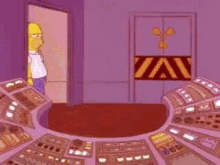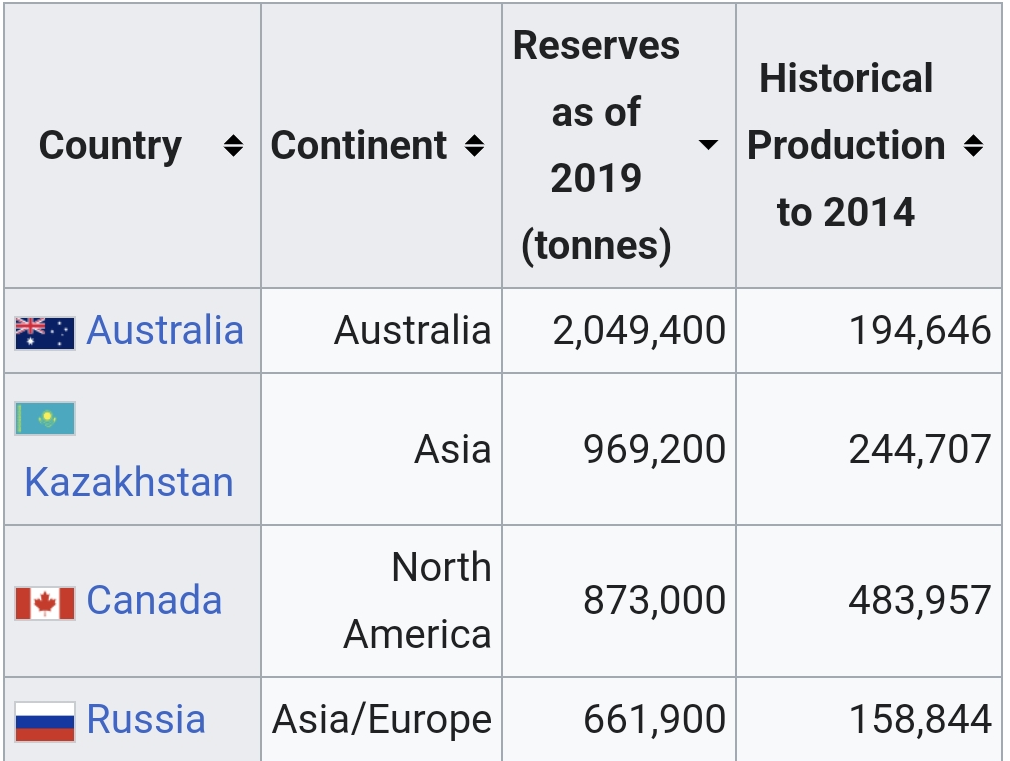The irony of Homer Simpson representing safe nuclear energy…
Well, it took much effort for Homer to blow up NPP

I would rather see more investment on better renewable tech then relaying on biohazard.
You would be surprised to know the amount of scientific research with actual solutions that aren’t applied cause goes against the fossil fuel companies and whatnot. Due to the fact that they have market monopoly.
The Simpsons shows it’s safe and efficient 😅
Thats not even funny. It’s not even a meme. It’s just straight outright corporate propaganda. F off with that, Pinkerton!
literally the least efficient in terms of cost and time.
battery backed renewables are a fraction of the price and are being deployed right now.
https://www.csiro.au/en/research/technology-space/energy/GenCost
edit: the tech is cool as hell. go nuts on research reactors. nuclear medicine has saved my sisters life twice… but i’m sorry, its just not a sane solution to the climate crisis.
Wait, I’m seeing a lot of people being very against nuclear. From what I’ve gathered, I see no downsides compared to fossil fuels
It may be too late for nuclear. Too much upfront cost, too long to build. Reneweables are cheaper in the long run, and with storage technologies getting better the problem with base load electricity gets smaller.
It is safe, nuclear, but why bother now.
Hello from Japan! :)
After nuclear accidents, you get to make anime without shame.
I’m sure nuclear can be super safe and efficient. The science is legit.
The problem is, at some point something critical to the operation of that plant is going to break. Could be 10 years, could be 10 days. It’s inevitable.
When that happens, the owner of that plant has to make a decision to either:
- Shut down to make the necessary repairs and lose billions of dollars a minute.
- Pretend like it’s not that big of a deal. Stall. Get a second opinion. Fire/harass anyone who brings it up. Consider selling to make it someone else’s problem. And finally, surprise pikachu face when something bad happens.
In our current society, I don’t have to guess which option the owner is going to choose.
Additionally, we live in a golden age of deregulation and weaponized incompetence. If a disaster did happen, the response isn’t going to be like Chernobyl where they evacuate us and quarantine the site for hundreds of years until its safe to return. It’ll be like the response to the pandemic we all just lived through. Or the response to the water crisis in Flint Michigan. Or the train derailment in East Palestine.
Considering the fallout of previous disasters, I think it’s fair to say that until we solve both of those problems, we should stay far away from nuclear power. We’re just not ready for it.
Where the fuck we gonna put all the waste product? I’m not saying nuclear power is bad, far from it, but we have two problems here:
- Its cost prohibitive to build new Third Generation reactors that are fault tolerant, and moreso to assure that all the Second Generation reactors are fully fault tolerant given how adjacent they are to flood plains and fault lines in the US
- Where the fuck are we gonna put the waste at? Yucca Mountain is off the table for good, WIPP is nearing capacity for a pilot plant, and we have nothing like Onkalo planned out despite the funding being there many times over
Iam so sick of this conversation. It is not cheap, it’s not clear where to let the waste and in the end it’s even dangerous. Don’t let some populists make you think nuklear energy is good. France made a big mistake to go all in. All projects take longer than expected and cost much more than calculated.
@spicytuna62 It’s not the best we got. The best we got is to stop the wasteful overproduction and stop letting society being about building building building.
We should rather reframe society into being about growing and localizing the economy. Focusing on living with nature, not at it’s expense.
Cost billions and have 10 year lead times?
Wdym 10 year lead times?
We’re reaching the point where discussing cost in regard to the energy crisis makes us look like fucking idiots.
Imagine what kids reading the history books are going to think of these discussions.
And 10 years isn’t that long really. If someone said we could use no fossil fuels in energy generation in 10 years time that doesn’t sound long at all.
Cost is a proxy for productivity and resources. So while it is stupid to say that the energy transition is too expensive, shouldn’t we rather invest our productivity and resources into a faster and cheaper solution? Drawing focus away from renewables is dangerous as others have mentioned, because it is too late to reach our goals with nuclear.
No I don’t think so. Nuclear is super effective and consistent, especially for large setups.
Using renewables while we get our nuclear up makes complete sense. And subsidising nuclear with renewables after that also makes sense.
But the technology to rely entirely on renewables isn’t really there either.
But the technology to rely entirely on renewables isn’t really there either.
Yes, it is.
This is a book by a professor of Civil and Environmental Engineering that goes into the details. We don’t need nuclear. All the tech is there.
shouldn’t we rather invest our productivity and resources into a faster and cheaper solution?
We sure should. Do tell of this this faster, cheaper solution that is also adequate to meet all of our needs.
Really gives me the warm fuzzies when someone looks at changes to physical systems over time then draws a trend line into the future indefinitely without any citations or discussion of plausibility for the part they drew on.
Which part specifically do you take issue with? It’s a bounded timeframe with over 60 references. We’re already 4 years into their predicted trends and on track so it seems like they are into something.
All the charts on page 15. The ones where they extrapolate exponential improvement for a decade while only citing themselves. Their prediction is 15% annually for storage cost improvements in Li-ion batteries which they call ‘conservative’
Our analysis conservatively assumes that battery energy storage capacity costs will continue to decline over the course of the 2020s at an average annual rate of 15% (Figure 3).
Let us check if their souce updated. $139 for 2023? That isn’t a 15% decrease since 2019’s $156, let alone year over year since then, which would be under $90. In spite of last year’s drop that is still more than the 2021 price of $132. I don’t know what ‘on track’ means to you but it must be something different than it means to me.
Yes. Should have started more 10years ago, but doesn’t mean don’t start now.
If you start building a new nuclear plant today, it’ll start generating power around the year 2045, by which time renewables with storage will have gotten even cheaper.
Bet you the public will be on the hook to pay for that white elephant because utility companies privatize profits and socialize losses.
Why do you assume it takes that long? Are you assuming US circumstances?
That’s how long they actually end up taking to build.
Look up the project history of your local NPP and see how long it was from planning approval to putting power on the grid.
It says it took 60 months on average. I guess from approval, it often took 8 years, so a decade makes sense.
Which country builds a NPP in only 5 years, China?
South Korea
Except we have better options than we did 10 years ago.
I’d be all for nuclear if we rolled back the clock to 2010 or so. As it stands, solar/wind/storage/hvdc lines can do the job. The situation moved and my opinion moved.
There are two main problems in my opinion, and they are both related to the “fuel”. First, uranium is rare and you often need to buy it from other countries. For instance, Russia. Not great. Second, it is not renewable energy. We can’t rely on nuclear fission in the long run. Then there’s also the issue of waste, which despite not being as critical as some argue, is still a problem to consider
The mining is also usually a really polluting affair for the region, much more than the what power generation might suggest. And overall, in many countries there is a lot of subsidies going on for hidden costs, especially relating to the waste and initial construction. So it is not as cheap as a first look might suggest.
I’m not against it per se, it is better than fossil fuels, which simply is the more urgent matter, but it’s never been the wonder technology it has been touted as ever since it first appeared.
One thing to remember about the mining issue is that coal mining is just as bad, and coal is often radioactive as well. More people have died from radiation poisoning due to coal power/mining than have died from radiation poisoning due to nuclear power, even when you include disasters like Three Mile Island and Chernobyl.
Of course, we’ve also been mining and using coal a lot longer, but the radioactive coal dust and possibly radioactive particles in the smoke from coal plants is something that many people are unaware of.
But, like you said, the big thing is to move away from fossil fuels entirely, and nuclear power has its own issues. It doesn’t so much matter what we go with so long as we do actually go with something, and renewables are getting better and better all the time.
Coal has caused more deaths this year than the entire history of nuclear anything has in total. This includes nuclear energy, nuclear research, nuclear medicine, nuclear irradiation (food storage), and too many orphan sources.
That’s why we need fusion, which will use a lot of the same tech.
I don’t think it will. The large cost of a reactor will probably be shared, but fission plants don’t deal with plasma, magnets, hydrogen/helium storage, lasers, or capacitors. And we don’t even know the method by which a practical fusion plant will operate!
I am talking in the sense that the same companies are participating in fusion research, and pretty sure the methods you mentioned are utilized somewhat in nuclear plants. Like handling and filtering radioactive materials.
Radioactive waste maybe. Fusion plants are likely to create irradiated parts that degrade quickly, similar to fission plants. Fusion fuel on the other hand, is gaseous, and likes to escape. Hydrogen is explosive, while helium-3 is just expensive.
Uranium isn’t the only possible fuel. It’s just the one we’ve been using (because it’s the one that lets you make nuclear weapons).
Uranium is not that rare. Doesn’t Canada have quite a bit of it? Portugal used to mine it too, as well as several countries in Africa
Yeah, countries obtaining uranium really isn’t that big of an obstacle.
Except that you don’t need uranium for nuclear reactors. The reason it’s used traditionally because it’s also used for nuclear weapons. Thorium is a much better fuel that’s more abundant. China has already started operating these types of reactors. The other advantage of this design is that they use molten salt instead of water for cooling. Molten salt reactors don’t need to be built next to large bodies of water, and they are safer because salt becomes solid when it cools limiting the size of contamination in case of an accident.
https://www.world-nuclear-news.org/Articles/Operating-permit-issued-for-Chinese-molten-salt-re
It’d be nice to prioritise it at least rather than tucking it away under the oil and gas rug. There is no real competition in energy output to a nuclear power plant. And despite its egregious up front cost, operating it is relatively low cost.
In regards to fuel, uranium is used often but there is options such as thorium that have been used with some success. I do agree it is unfortunate to have to purchase from other countries but I think it beats buying natural gas from wherever it may be sold.
There are some reactor designs that run on waste of standard reactors. It would solve two of your points for at least some decades.
Buying uranium from Canada and Australia? Inconceivable!
you often need to buy it from other countries. For instance, Russia. Not great.
Yeeeeah, I wouldn’t worry about that. Sure we (Australia) are conservative with our fears of mining and exporting uranium, especially with the Cold War and reactor whoopsies around the world. But historically it doesn’t take much for us to go down on an ally.

Just let us finish unloading all our coal off to the worst polluting nations first, then we’ll crack the top-shelf stuff.
Is that supposed to convince me that there’s plenty of uranium left? Because based on the numbers shown with reserve vs. historical usage it kinda seems like it would last for a few decades at best.
A big problem IMO is the generational responsibility of the waste as well. There needs to be decades of planning, monitoring and maintaince to ensure waste sites are safe and secure, this can be done but modern political climates can make it difficult.
Agreed, dealing with the waste is a thing. But for me a solvable problem and something that doesn’t need to be solved right away. We currently store a lot of nuclear waste in holding locations till we figure out a way to either make it less radioactive or store it for long enough. The alternative however is having coal plants all over the world spew all their dust (including radioactive dust) and CO2 straight into the atmosphere. This to me is a far bigger issue to solve. It isn’t contained in one location, but instead ends up all over the world. It ends up in people’s homes and bodies, with a huge impact to their health. It ends up in the atmosphere, with climate change causing huge (and expensive) issues.
The amount of money we need to handle nuclear waste would be orders of magnitude lower than what we are going to have to pay to handle climate change. And that isn’t even fixing the issue, just dealing with the consequences. I don’t know how we are ever going to get all that carbon back out of the atmosphere, but it won’t be cheap.
In Spain we are starting to get negative prices every weekend for electricity thanks to renewables. France is not even close to those prices with their bet for nuclear.
Don’t get me wrong, I love nuclear power. And I’m not a big fan ok what thousands of windmills made to our landscapes. But efficiency wise renewable is unbeatable nowadays.
Meanwhile in Georgia (USA) they completed a new nuclear power plant and they have to raise rates because it went 100% over its $14 billion budget.
I’m not a big fan
…
thousands of windmills
I see what you did there.
Negative energy prices are a bad thing! That means that someone is dumping energy into the grid (you should be paying the grid if you have solar panels!!) In the UK all renewable energy had to be called ‘experimental’ so that the pricing was fixed and the government picks up the tab - that’s not good. Check this map - right now the wind isn’t blowing and solar hasn’t got out of bed - so most of the countries using renewables are looking shit - later today solar will kick in, but tonight it will be bad again. That isn’t a solution.
Energy is expensive in France because we are legally forced by european regulation to sell at those prices. Our energy is the least expensive to produce
They don’t need to be exclusive. Power generation should be diverse. Otherwise prices will go through the roof on times without wind (happens in Germany). This can lead to higher energy prices in combination with high energy exports.
The Spanish government is now petitioning its public for ideas on how to waste power.
time to start mining for crypto and running LLM AI servers.
They should have public fridges that are left open to help cool the planet.
They should build the Matrix.
Mine bitcoins. Or ditch capitalism. Wait, last one is opposite of wasting. Feed capitalism.
Look. Bitcoins might be useless at a societal level. But if we’re going to use excess renewable energy to drive out of business the crypto-miners who get their power from coal…
It’s interesting watching the discussion in this thread evolving and polarizing. Yesterday the discussion started as ‘nuclear is one solution in a portfolio of solutions to combat climate change. vs. nuclear is always bad.’ and developed into ‘nuclear is good and you’re dumb. vs. nuclear is bad and you’re evil’.


















